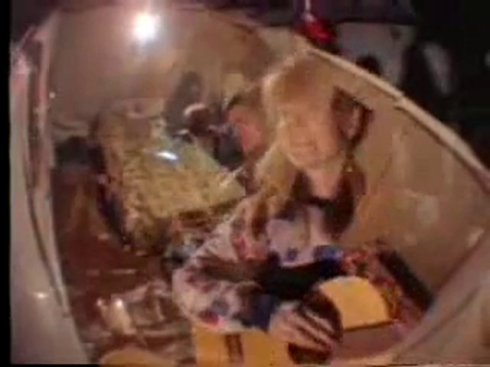
“The above piece of writing appeared on the rear sleeve to “They Suffocate At Night” when it was first released in late 1986. At the time I paid no attention to the date I had chosen for my entrance into the tunnel – the 10th of July 1985 – I presumed I had simply picked it out of thin air. It wasn’t until I was looking through some old papers that I realised the date’s significance – amongst the papers was a copy of our first contract with Fire Records. It was dated – you guessed it – the 10th of July 1985. Had my unconscious mind been trying to tell me something I wonder? Hmmmmm.”
Jarvis’s rejected sleeve notes from the “Masters of the Universe” compilation, 1994.
Tunnel (B-Side to ‘They Suffocate At Nght’, 1987)
Tunnel at Pulpwiki
…there was nothing else to do, I was bored…
As strange as it may seem, ‘Tunnel’ started out as something of a pop song. Admittedly, this was only within the context of a famously shambolic late 1984 Pulp gig, set among the morbid and the painful, but it’s still very odd to hear. The bass riff is much more playful and melodic, and Magnus seems to be playing a brushy post-punk-jazz fill throughout. The song is much faster, half the length of the recorded version, and instead of echoed announcements Jarvis has dusted off his punk yelp. Most vitally there is no breakdown, no wall of noise and violence, but the song itself is still there, somehow, though lacking the reference to the 10th of July 1985, of course.
…don’t ask stupid questions…
Then the band, for whatever reason, left the song to fester for two and a half years, digging it out at the tail-end of the “Freaks” recording sessions. In a week full of misfires, fudges and rush jobs, it’s the only track that really blossomed in the studio environment. After it had been laid down, Russell commented that “the muse was with us” – and not without reason. The success of the recording was, however, at the expense of the future of the track, the finished eight minutes being very much a studio product, and not reproducible in a live setting.
…a thousand bodies stink and sweat, and somebody’s trying to roll a cigarette…
Once again form reflects subject. The track (never has the word been more apt) feels like a progression through a tunnel, though (spoiler) we never get to emerge from the other end. We enter along Manners’ locomotive bass line, pounding drums emerge, battering you from left and right, their rhythm jarringly out of step until suddenly everything slots together. Soon words emerge, like megaphone pronouncements from a crumbling communications room, the announcer asleep, or undergoing some kind of schizophrenic breakdown. Then, crashing walls of distorted guitar. We move through several sections, the insanity building each time the rhythm shifts. Finally we descend into fiery chaos, backward sounds wailing like trapped animals with seemingly random flashes of noise and melody including misplaced surf rhythms coming in like radio interference. What we have here is more than a bad trip – it’s the unreliable narration of a fall into hell.
…at 3 o’clock that the morning I awoke in an unfamiliar room…
Of course, there are plenty of people out there who don’t like “Tunnel” – Pulp fans, music reviewers, people in general…. Reviewers on Bar Italia (presumably some of the keenest fans of all) described it as “pointless, rambling, horrible, crappy drivel” and “over-indulgence of the worst kind.” When I first heard it on the ‘Masters of the Universe’ compilation in 1995 I remember universal disapproval from friends and family. It’s clear then, that my love of the song puts me in a tiny minority, and sometimes I even doubt myself. Is it just nostalgia for the piece that introduced me to the world of discordant, experimental music? On balance, I honestly still feel not. It’s a powerful, original piece of work, and comparisons to Joy Division or other post-punks does nothing to dilute this. Why? Because it’s not a pastiche – it’s real.
…Let me out! Let me out! Let me out!…
How did Jarvis write the lyrics to ‘Tunnel’? The greatest influence seems to be film noir and the twilight zone, but there’s also a section that reads like cut-up poetry – an effective simalcrum of a schizoid mind. The protagonist is clearly disconnected from clear thought and speech – he keeps going off at odd tangents and being distracted by disconnected thoughts. The passion excuses the opacity, which in turn excuses the strangeness. This is also the first sighting of “sunlight through net curtains” – a premonition, perhaps.
…and to be clean again. But I know I’ll never ever be clean again…
‘Tunnel’ could easily have been the final track in the Pulp discography. The band had split up, and Jarvis would, within a year, be heading down to study at St Martin’s, hundreds of miles away from the rest of the group. Fire’s decision to put out a single release of “Master of the Universe” a few months later was barely noticed – its b-sides having been salvaged from old demos, the single contained nothing in the way of new material. ‘Tunnel’ would have been a fitting end to the band – a summation of “the worst years of our lives” – as well as a great buck “fuck you” to the people responsible – Fire Records, the venues, the record-buying public, the members of the band themselves…
It would be four long years until the group put out another record, but that’s a whole other story.



